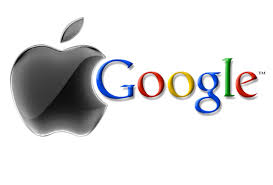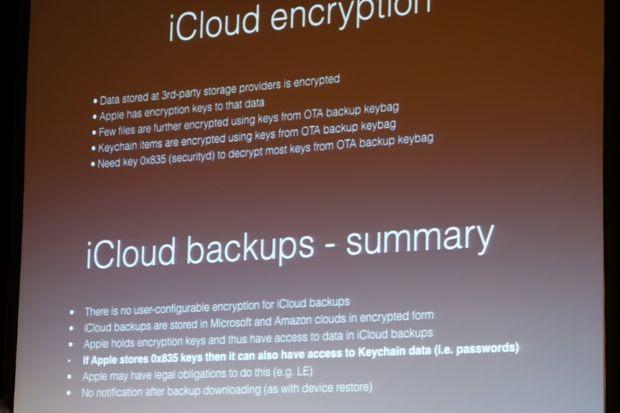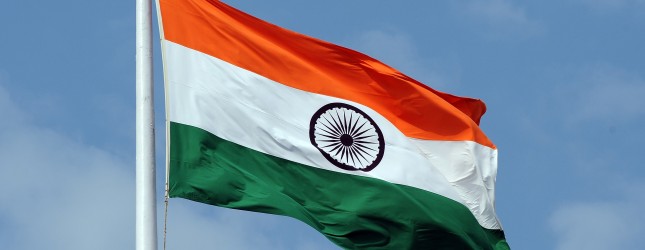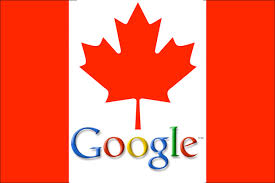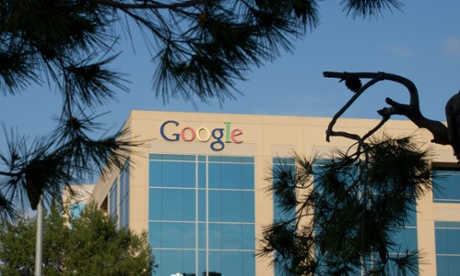PARIS: The US Apple and Google brands which have become household names around the globe are worth more than $100 billion each, and top a ranking of the world’s biggest brands, consultancy Interbrand said. In number one place, computer brand Apple has risen 21 percent in value this year to worth an estimated $118.9 billion (93.0 billion euros). In second place, the brand value of Internet search engine Google has increased by 15 percent to $107.43 billion. “The fact that Apple and Google have exceeded $100 billion is proof of…
Read MoreTag: Google
Apple vs. Google: New privacy battle looms
A new battle is brewing over privacy for mobile devices, after moves by Google and Apple to toughen the encryption of their mobile devices sparked complaints from law enforcement Washington (AFP) – A new battle is brewing over privacy for mobile devices, after moves by Google and Apple to toughen the encryption of their mobile devices sparked complaints from law enforcement. The issue is part of a long-running debate over whether tech gadgets should have privacy-protecting encryption which makes it difficult for law enforcement to access in time-sensitive investigations. FBI…
Read MoreFollowing celebrity hacks, here’s how to secure your iCloud account
Though Apple says it’s investigating a reported hack on the iCloud accounts of several celebrities, there is an easy way for users to secure their accounts. Over the weekend, reports emerged that a number of celebrities had their iCloud accounts compromised by unknown hackers, and personal photos leaked onto the internet. Apple says it is “actively investigating” the situation. The exact details of the hack are unknown, but some security researchers believe Apple left iCloud vulnerable to a brute force password hacking attempt. Basically, hackers could use a piece of…
Read MoreGoogle, five Asian telecom firms partner to build $300 million undersea cable to Japan
(Reuters) – Search engine Google Inc and five Asian telecom and communications companies have agreed to invest about $300 million to develop and operate an undersea cable trans-Pacific cable network connecting the United States to Japan. To be named “FASTER,” the cable network will have an initial capacity of 60 terabits per second and will connect Los Angeles, Portland, San Francisco, Oregon and Seattle to Chikura and Shima in Japan. NEC Corp, which will be the system supplier for the undersea cable network, said in a statement that construction would…
Read MoreBlackBerry finally cedes to Indian government monitoring its servers
Blackberry appears to be losing an ongoing dispute with the Indian government over the state’s access to its data, as today an internal document from the state’s Department of Telecommunications stated “the lawful interception system for Blackberry Services is ready for use.” According to the Economic Times, after over two years of pushback, BlackBerry has finally ceded to the Indian government’s insistence that the Canadian phone maker provide the state with access to portions of data exchanged between any of its users. The company has provided a solution that allows…
Read MorePrivate undersea cable ventures validate network growth trends
Google may invest in a multi-million-dollar undersea cable across the Pacific Ocean that will help handle increasing amounts of undersea traffic being sent across private networks, according to The Wall Street Journal. Despite arguments about Net neutrality, privately owned undersea cables, for example, give the companies that own it more control over traffic prioritization long before it reaches consumers. Google’s potential move makes sense in terms of a recent TeleGeography Global Bandwidth Research Service report, which found that while international backbone operators are still the primary users of international bandwidth,…
Read MoreTim Wu,The Father of Net Neutrality Returns to Do Battle With Comcast
Tim Wu saw firsthand how people can mess with the internet. Fifteen years ago, he landed a marketing job with a network equipment maker called Riverstone Networks. Riverstone made network routers, among other things, and it sold many of these to Chinese internet service providers who then used them to block traffic on their networks. After about a year, he left Riverstone, disillusioned but wiser. And today, Wu says that the time he spent there helped cement the idea that has made him famous: net neutrality. First proposed in a…
Read MoreRight to Be Forgotten: Google must block a group of websites worldwide Rules Canadian Court
On the heels of Europe’s “Right to Be Forgotten” ruling, a British Columbia court in Canada has ruled Google must block a group of websites worldwide. The case was opened by industrial networking devices manufacturer Equustek Solutions, Inc. to block a network of websites it claims are owned by former associates who stole trade secrets to illegally manufacture and sell competing products. According to a report from the The Globe and Mail, a temporary injunction against Google was issued last Friday in spite of Google’s protests that Canadian courts had no…
Read MoreGoogle launches webform for ‘right to be forgotten’ removal requests in response to EU court ruling
Google has launched a webpage where European citizens can request that links to information about them be taken off search results, the first step to comply with a court ruling affirming the “right to be forgotten”. The company, which processes more than 90% of all web searches in Europe, has made available a webform through which people can submit their requests but has stopped short of specifying when it will remove links that meet the criteria for being taken down. Google said it had convened a committee of senior executives…
Read MoreRight to Be Forgotten? Europe’s Orwellian Internet Time Warp
By David Kirkpatrick When the European Court of Justice—the rough equivalent of the U.S. Supreme Court—ruled that individuals have the “Right to Be Forgotten,” it took a dangerous step backward. Among many potential negative consequences, it could contribute to slowing global economic growth. The court endorsed a profoundly a historical, anti-technological argument about the supposed rights of individuals. The plaintiff, Mario Costeja Gonzalez, is a Spanish citizen who was joined by a Spanish government agency in arguing that Google ought not link to a 1998 newspaper mention of a real estate…
Read More
